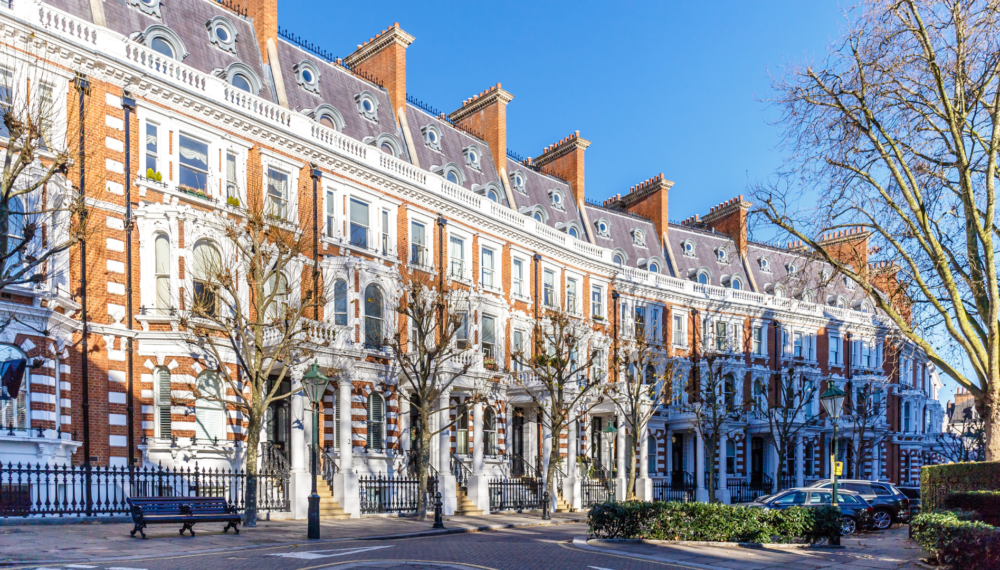Unravelling the Complexities of High-Value Mortgages for Aspiring Homebuyers
If you’re on the journey to becoming a homeowner with a property valued at over £1m, you’ve likely come across the term “high-value mortgages“. But what exactly are high-value mortgages, and how do they differ from standard mortgages? In this guide, we will demystify high-value mortgages, helping you understand what they are, how they work, and the essential insights you need as a prospective homebuyer.
Understanding High-Value Mortgages
High-value mortgages, often referred to as large mortgage loans, are a specialised type of mortgage designed for homes with a significantly higher price tag than the average. These mortgages accommodate the unique financial needs of high-net-worth individuals.
Differences Between Standard and High-Value Mortgages
The key distinction between standard and high-value mortgages primarily revolves around the loan amount, influencing the choice of available lenders. High-value mortgages, often associated with multi-million-pound price tags, fall into the non-conforming category, as they do not adhere to the loan limits typically established by mainstream lenders. Most lenders offer standard pricing up to £1m, with altered product offerings above this level.
Kem Kemal, CEO and Co-Founder of Henry Dannell, comments:
“Private banks traditionally dominated the large loan space for high-net-worth (HNW), while retail banks served the masses. However, retail banks are now stepping up to challenge private banking institutions head-on, offering holistic lending approaches to those who need it.
One of the primary challenges in securing a high-value mortgage revolves around the effective presentation of a client’s financial profile to the lender. While this is also a factor in the case of standard mortgages, high-value mortgages typically involve clients with more intricate financial profiles. In our experience, when income and assets are meticulously explained, many clients who initially believed that their sole option was a private bank might discover that high street or challenger banks can now also successfully facilitate the transaction.”
Loan Amounts: The Defining Factor
While the specific threshold may vary by lender and region, a mortgage is typically considered high-value when it exceeds £1m. The larger loan amounts necessitate different underwriting standards and eligibility requirements, making high-value mortgages a distinct category in the world of home financing.
The High-Value Mortgage Application Process Simplified
Getting a high-value mortgage may seem daunting, but the application process shares many similarities with standard mortgages. Here’s a simplified breakdown of what you need to know:
Valuation – The lender will conduct a valuation of the property you intend to purchase. This valuation helps determine the property’s value and assesses its condition. The property must meet certain standards to qualify for a mortgage.
Documentation – These mortgages typically require a more detailed breakdown of the financial profile of the individual, detailing sources of wealth and income history.
Interest Rates – High-value mortgages may have slightly higher interest rates compared to standard mortgages due to the increased risk for lenders. However, interest rates can vary based on your creditworthiness and the lender’s policies.
Fees – The product fees attached to these mortgages will often be higher than standard mortgages. While most standard mortgages cap out at £999, high-value mortgage fees are typically around £1,999 or up to 1% of the loan amount.
Tips for Prospective High-Value Borrowers
If you’re considering a high-value mortgage, here are some tips and best practices to keep in mind:
Consult with a specialist mortgage adviser – high-value mortgages can be complex, so it’s essential to work with an experienced mortgage adviser who can guide you through the process and help you find the right loan for your needs. At Henry Dannell, we provide specialist guidance and solutions for clients seeking high-value mortgages.
Save for your deposit – be prepared that a reduced number of lenders are available when the deposit is below 25%. A larger deposit will provide access to more lending opportunities.
Understand the costs associated with a high-value mortgage – high-value mortgages may come with additional fees and costs. Make sure you fully understand the total cost of the loan.
FAQs
What are the most common hurdles in high-value mortgage applications?
High-value mortgage applications can be more challenging due to the larger loan amounts and stricter requirements. Some common hurdles include:
Stringent credit requirements: Lenders will often look further into the asset and liability profile of a borrower to ensure the profile is sustainable moving forward.
Large deposit: The need for a substantial deposit can be a significant hurdle for borrowers to access favourable rates.
Complex documentation: The extensive documentation required for high-value mortgages can often surpass the requirements for a standard mortgage. Engaging with a mortgage adviser can help navigate these intricacies to streamline the process for a smoother experience.
Interest rates: Interest rates for high-value mortgages may be higher, which can increase the cost of borrowing over time.
Are there specialised lenders for specific types of high-value properties?
Yes, there are specialised lenders that cater to specific high-value property types and borrowers. These lenders have expertise in high-value mortgages and might offer greater flexibility in their lending criteria, such as properties with large acreage or multiple dwellings on one title. At Henry Dannell, we have well-established relationships with lenders specialising in this type of lending, enabling us to identify the right lender and solution for your needs.
For more information or support arranging a high-value mortgage in the UK, please do not hesitate to contact our specialist team of advisers. We are here to assist you in securing the ideal high-value mortgage solution for your luxury property needs.
Please note: a mortgage is secured against your home or property. Your home or property may be repossessed if you do not keep up repayments on your mortgage or any other debt secured on it.







